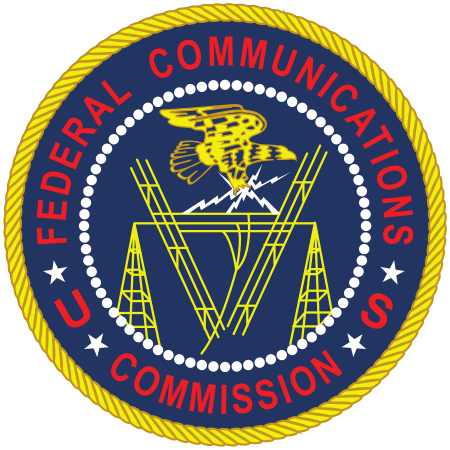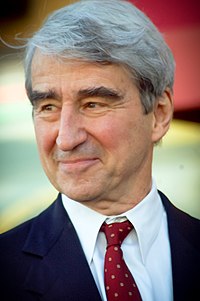The Television Portal

Television (TV) is a telecommunication medium for transmitting moving images and sound. Additionally, the term can refer to a physical television set rather than the medium of transmission. Television is a mass medium for advertising, entertainment, news, and sports. The medium is capable of more than "radio broadcasting," which refers to an audio signal sent to radio receivers.
Television became available in crude experimental forms in the 1920s, but only after several years of further development was the new technology marketed to consumers. After World War II, an improved form of black-and-white television broadcasting became popular in the United Kingdom and the United States, and television sets became commonplace in homes, businesses, and institutions. During the 1950s, television was the primary medium for influencing public opinion. In the mid-1960s, color broadcasting was introduced in the U.S. and most other developed countries.
In 2013, 79% of the world's households owned a television set. The replacement of earlier cathode-ray tube (CRT) screen displays with compact, energy-efficient, flat-panel alternative technologies such as LCDs (both fluorescent-backlit and LED), OLED displays, and plasma displays was a hardware revolution that began with computer monitors in the late 1990s. Most television sets sold in the 2000s were still CRT, it was only in early 2010s that flat-screen TVs decisively overtook CRT. Major manufacturers announced the discontinuation of CRT, Digital Light Processing (DLP), plasma, and even fluorescent-backlit LCDs by the mid-2010s. LEDs are being gradually replaced by OLEDs. Also, major manufacturers have started increasingly producing smart TVs in the mid-2010s. Smart TVs with integrated Internet and Web 2.0 functions became the dominant form of television by the late 2010s. (Full article...)
Selected article -
Selected image -

The Federal Communications Commission (FCC) is a United States government agency, created, directed, and empowered by Congressional statute (see 47 U.S.C. § 151 and 47 U.S.C. § 154), and with the majority of its commissioners appointed by the current president. The FCC was established by the Communications Act of 1934 as the successor to the Federal Radio Commission and is charged with regulating all non-Federal Government use of the radio spectrum (including radio and television broadcasting), and all interstate telecommunications (wire, satellite and cable) as well as all international communications that originate or terminate in the United States.
Did you know (auto-generated) -

- ... that William, Prince of Wales, inspired the character of Prince Wheeliam in Cars 2?
- ... that Valley Public Television once raffled off a 1961 Rolls-Royce Silver Cloud, according to the wishes of the man who bequeathed it to the station?
- ... that the sentencing phase of the Jemma Mitchell case was the second to be filmed in England and Wales since a change in the law permitted television cameras into court?
- ... that WTVK in Knoxville, Tennessee, won a years-long battle to move from UHF to a VHF channel, only to be sent by new management to "that big TV station in the sky"?
- ... that Fred Rogers created and hosted a television documentary series titled Old Friends ... New Friends due to his concern that older generations were getting more isolated from younger generations?
- ... that before pursuing a career in music, Lauren Jenkins was the host of a wrestling television show?
Selected quote -
More did you know
- ...that The Simpsons' history began when Matt Groening conceived of the dysfunctional family in the lobby of James L. Brooks's office?
- ...that the 1994 Guinness television advertisement Anticipation used jump cutting techniques to make an actor appear to be performing a physically impossible dance?
- ...that Black Entertainment Television comedy series We Got to Do Better, had its name changed from Hot Ghetto Mess amidst allegations of enforcing negative stereotypes of African Americans?
- ...that the final episode of the 1986 television series Outlaws recycled footage from The Oregon Trail, because actors Rod Taylor and Charles Napier appeared in both programs?
- ...that like the characters in his television series The Practice and Boston Legal, David E. Kelley worked as a lawyer in a Boston law firm?
Selected biography -
Sydney Cecil Newman OC (né Nudelman; April 1, 1917 – October 30, 1997) was a Canadian producer and screenwriter who played a pioneering role in British television drama from the late 1950s to the late 1960s. After his return to Canada in 1970, he was appointed acting director of the Broadcast Programs Branch for the Canadian Radio and Television Commission (CRTC) and then head of the National Film Board of Canada (NFB). He also occupied senior positions at the Canadian Film Development Corporation and Canadian Broadcasting Corporation, and acted as an advisor to the Secretary of State.
During his time in Britain in the 1950s and 1960s, Newman worked first with ABC Weekend TV before moving across to the BBC in 1962, holding the role of Head of Drama with both organisations. During this phase of his career, he created the spy-fi series The Avengers and co-created the science-fiction series Doctor Who, as well as overseeing the production of groundbreaking social realist drama series such as Armchair Theatre and The Wednesday Play. (Full article...)
General images
News
- December 28: US professional wrestler Jon Huber dies aged 41
- September 2: Tributes paid to recently deceased US actor Chadwick Boseman
- May 24: Japanese professional wrestler and Netflix star Hana Kimura dies aged 22
- January 16: BBC newsreader Alagiah to undergo treatment for bowel cancer
- Upcoming events
Featured content
Main topics
History of television: Early television stations • Geographical usage of television • Golden Age of Television • List of experimental television stations • List of years in television • Mechanical television • Social aspects of television • Television systems before 1940 • Timeline of the introduction of television in countries • Timeline of the introduction of color television in countries
Inventors and pioneers: John Logie Baird • Alan Blumlein • Walter Bruch • Alan Archibald Campbell-Swinton • Allen B. DuMont • Philo Taylor Farnsworth • Charles Francis Jenkins • Boris Grabovsky • Paul Gottlieb Nipkow • Constantin Perskyi • Boris Rosing • David Sarnoff • Kálmán Tihanyi • Vladimir Zworykin
Technology: Comparison of display technology • Digital television • Liquid crystal display television • Large-screen television technology • Technology of television
Terms: Broadcast television systems • Composite monitor • HDTV • Liquid crystal display television • PAL • Picture-in-picture • Pay-per-view • Plasma display • NICAM • NTSC • SECAM
Categories
WikiProjects

|
You are invited to participate in WikiProject Television, a WikiProject dedicated to developing and improving articles about Television. |
- Main projects
- Sub-projects
Television Stations • American animation • American television • Australian television • British TV • BBC • Canadian TV shows • Television Game Shows • ITC Entertainment Productions • Digimon • Buffyverse • Doctor Who • Degrassi • EastEnders • Episode coverage • Firefly • Futurama • Grey's Anatomy • Indian television • Lost • Nickelodeon • The O.C. • Professional Wrestling • Reality TV • The Simpsons • Seinfeld • South Park • Stargate • Star Trek • Star Wars • Soap operas • Avatar: The Last Airbender • House
- Related projects
Animation • Anime and manga • Comedy • Comics • Fictional characters • Film • Media franchises
What are WikiProjects?
Things you can do

- Place the {{WikiProject Television}} project banner on the talk pages of all articles within the scope of the project.
- Write: Possible Possum
- Cleanup: color television, Alien Nation: Body and Soul, The Sopranos, Alien Nation: Dark Horizon, Alien Nation: The Enemy Within, Alien Nation: Millennium, Aang
- Expand: Timeline of the introduction of color television in countries
- Stubs: Flow (television), Just for Kicks (TV series), Play of the Month, Nova (Dutch TV series), More stubs...
Subportals
Related portals
Associated Wikimedia
The following Wikimedia Foundation sister projects provide more on this subject:
-
Commons
Free media repository -
Wikibooks
Free textbooks and manuals -
Wikidata
Free knowledge base -
Wikinews
Free-content news -
Wikiquote
Collection of quotations -
Wikisource
Free-content library -
Wikiversity
Free learning tools -
Wiktionary
Dictionary and thesaurus





























































